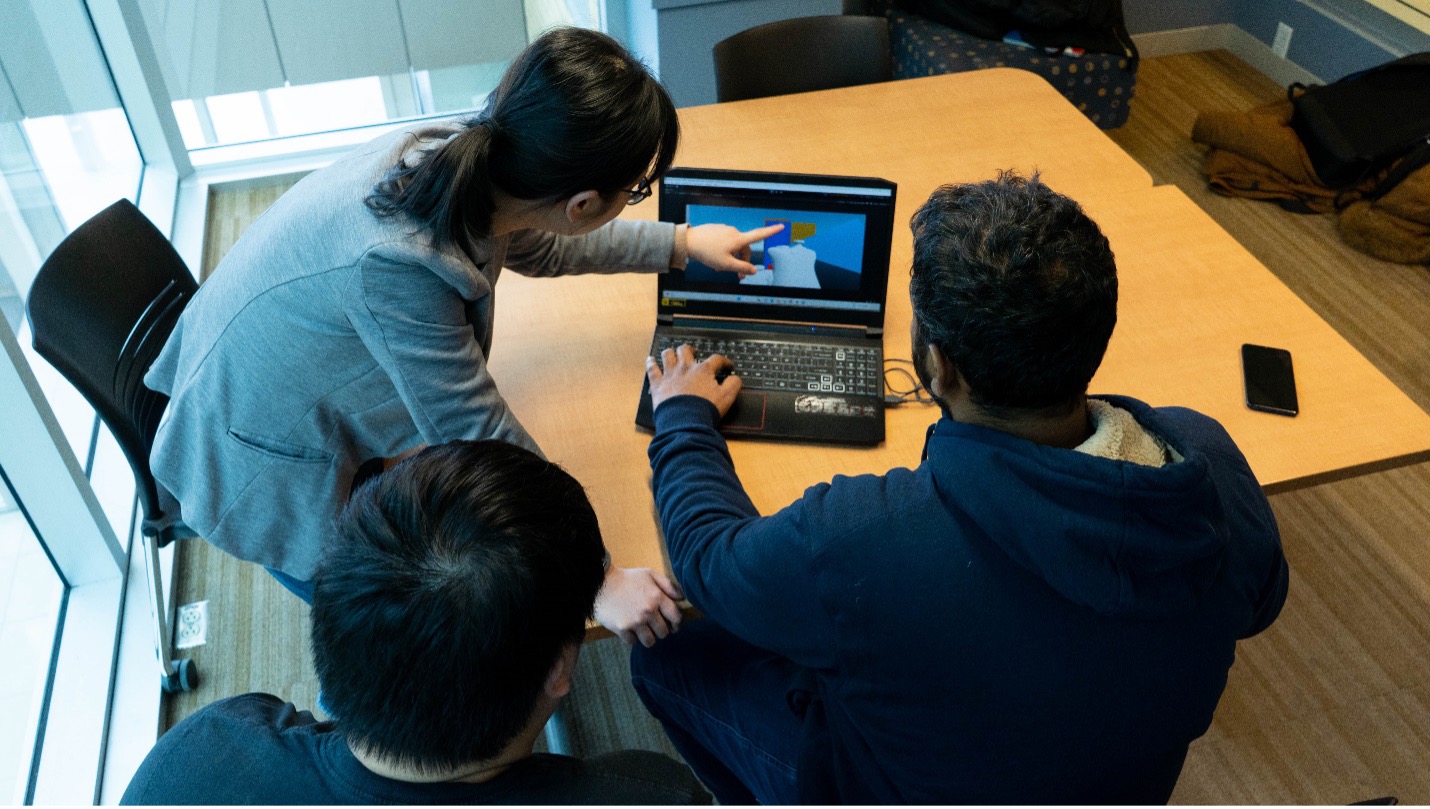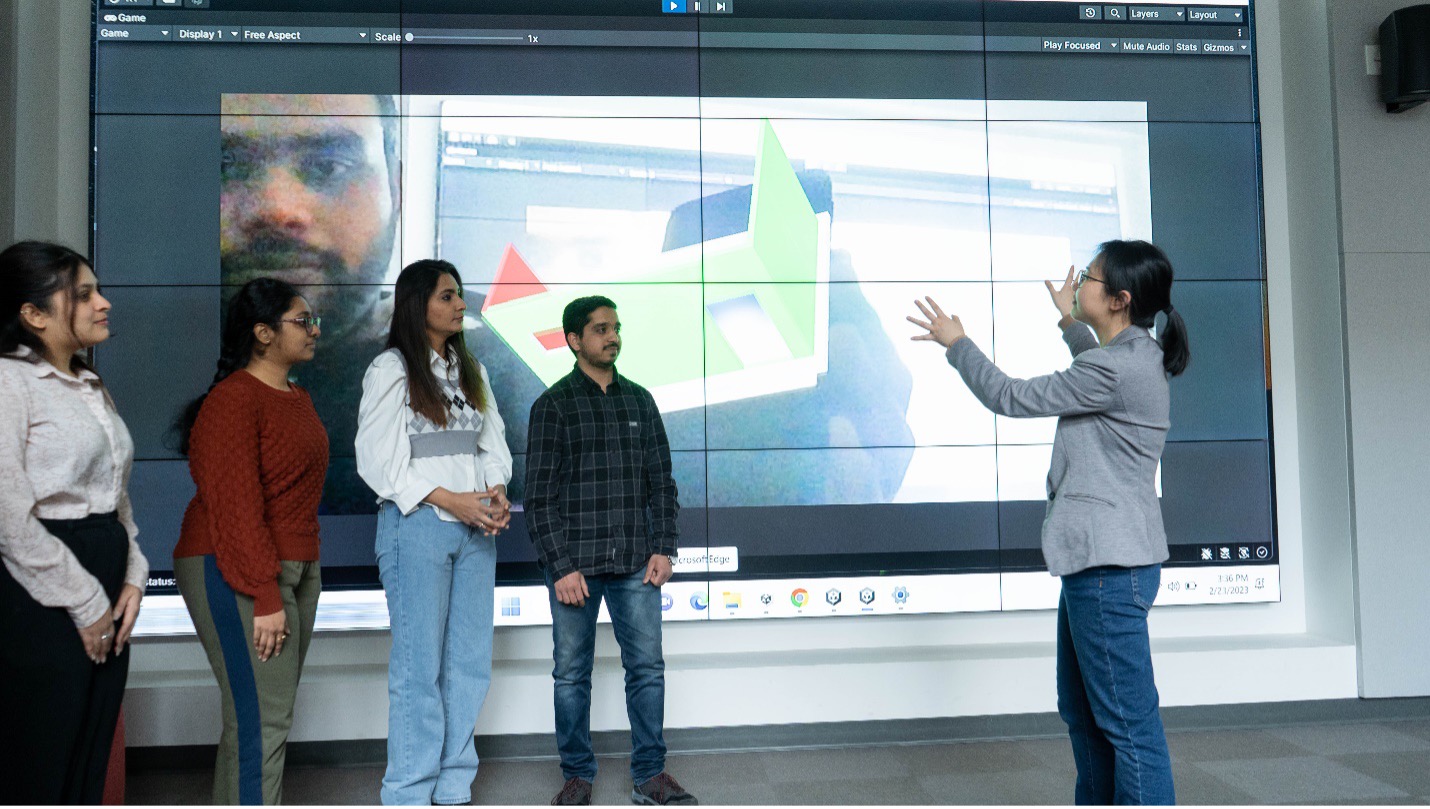Despite harsh conditions and a small workforce, new research from UBC Okanagan suggests Augmented Reality (AR) could improve the efficiency of remote construction projects.

In a paper that was recently nominated for best paper at the 22nd International Conference on Construction Applications of Virtual Reality, PhD student Kantheepan Yogeeswaran and Assistant Professor Qian Chen have designed a solution to upskill labour in remote communities.
“In recent years, there has been a shift toward prefabrication construction in remote areas but the shift can impact the labour market as a result,” says Kantheepan, “In many cases no training is available for local trades to undertake this work.”
As a result, external skilled laborers are brought into these communities to lead these projects. The new research seeks to help local workers transition between traditional construction and the assembly part of prefabricated construction.
According to Chen, the key to a successful training solution is affordability and accessibility. “Construction processes are usually complex and dynamic, that’s why we were focused on a solution that was simple to implement and intuitive to use.”
Prefabricated construction typically uses components made off-site that are transported to a location for assembly. For craftspeople, the process can be challenging because the steps do not mirror traditional construction.
Using the approved installation sequence as a foundation, the researchers created a step-by-step training module that uses 3D modelling to provide labours with a clear understanding of the process.
“Whether it’s a puzzle or Lego, a user can get lost in the assembly process, so this solution is intend on removing uncertainty while providing a clear and visually-appealing method of training,” explains Kantheepan.

While similar technology has been implemented within pre-fabrication factories, it is not the case within the construction industry. The researchers are hoping this new technology will further improve the success integration of prefabrication construction in Canada’s north and remote areas around the globe.
The research is published in the proceedings of the CONVR 2022, and was done in collaboration with the Professor Borja Garcia de Soto from New York University Abu Dhabi (NYUAD) and was benefited from the collaboration with NYUAD Center for Interacting Urban Networks (CITIES) funded by Tamkeen under the NYUAD Research Institute Award.